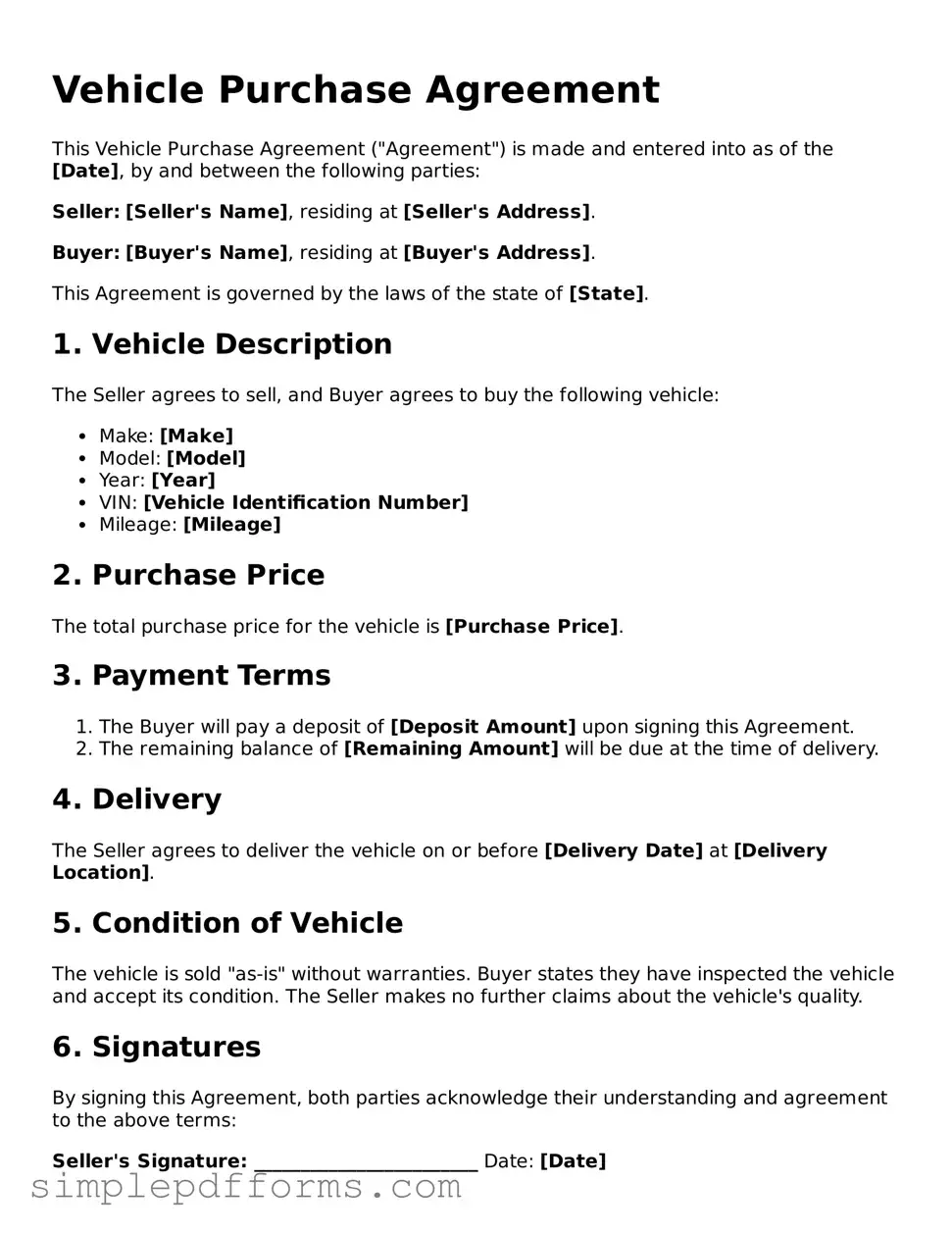Free Vehicle Purchase Agreement Form
A Vehicle Purchase Agreement is a legal document that outlines the terms and conditions of a vehicle sale between a buyer and a seller. This agreement typically includes details such as the vehicle's make, model, year, and identification number, as well as the purchase price and payment terms. It serves to protect both parties by clearly defining their rights and obligations throughout the transaction.
Open Vehicle Purchase Agreement Editor Now

Free Vehicle Purchase Agreement Form
Open Vehicle Purchase Agreement Editor Now

Open Vehicle Purchase Agreement Editor Now
or
Get Vehicle Purchase Agreement PDF Form
Your form is waiting for completion
Complete Vehicle Purchase Agreement online in minutes with ease.